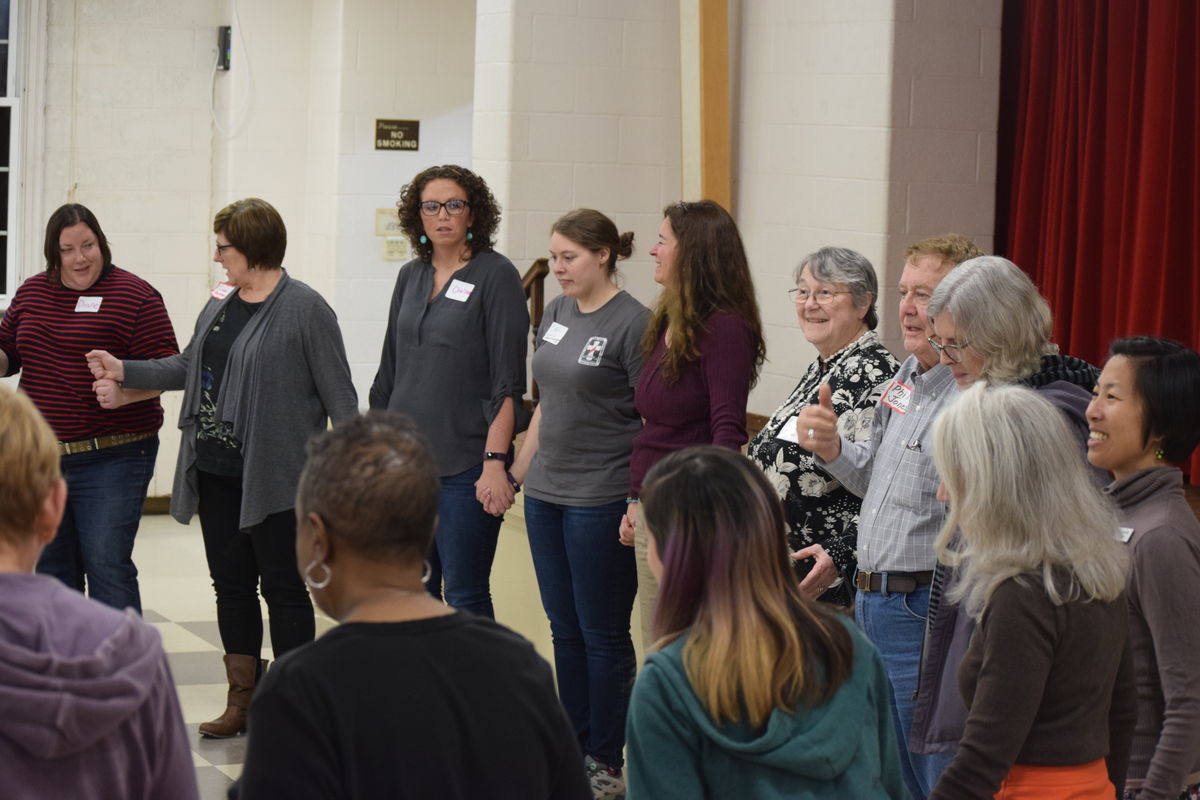Reproductive Health
Policies that get in the way of our health are not part of God’s hopes and desires for us.

In Genesis 1:27, we learn that each of us are made in God’s image. Too often women and girls are treated differently than men, denying the divine imprint on our lives.
Policies that get in the way of our spiritual, physical, mental and emotional health are not part of God’s hopes and desires for us. And that’s why we advocate for women and for life-saving health care around the world.
We affirm the right of men and women to have access to comprehensive reproductive health/family planning information and services.
United Methodist Social Principles, ¶162.VThe health and well-being of women and girls determines the strength of families, communities and nations. Access to health care for women and girls must consider the physical, mental, emotional, and spiritual aspects of her being. Investing in preventative care, comprehensive reproductive health care and sexuality education increases the likelihood that women and girls will be able to take advantage of educational and economic opportunities to build wealth benefitting themselves, their families, and their communities.
Women and girls face unique realities, which necessitates access to safe, affordable and quality comprehensive medical care. Just some of these circumstances include pregnancy complications, sexual and physical assault, trafficking, child marriage, and limited access to economic prosperity.
What The United Methodist Church Says:
Comprehensive Reproductive Health:
“We affirm the right of men and women to have access to comprehensive reproductive health/family planning information and services that will serve as a means to prevent unplanned pregnancies, reduce abortions, and prevent the spread of HIV/AIDS. The right to health care includes care for persons with brain diseases, neurological conditions, or physical disabilities, who must be afforded the same access to health care as all other persons in our communities. It is unjust to construct or perpetuate barriers to physical or mental wholeness or full participation in community.” (Social Principles, ¶162.V)
Sexuality Education:
The Church supports the family in providing age-appropriate education regarding sexuality to children, youth, and adults.
“Disease prevention, public health programs, and health education including sex education, appropriate to every age level and social setting are needed globally. Services should be provided in a compassionate and skillful manner on the basis of need, without discrimination as to economic status, mental or physical disability, race, color, religion, gender, age, national origin, language, or multiple diagnoses.” (Book of Resolutions, 3202)
Abortion:
The Church promotes compassion, prayer and action.
When he saw her, the Lord had compassion for her and said, “Don’t Cry” – The Gospel of Luke 7:13 CEB.
While the Supreme Court has not yet issued an official opinion to overturn Roe v. Wade, as United Methodists we continue to pursue ministry that reflects Christ’s work of engaging, trusting and valuing women.
The United Methodist General Conferences have long debated and prayerfully considered the theological and moral dimensions of reproductive health as outlined in our Social Principles ¶161. We urge all United Methodists to continue to review and study our Social Principles ¶161 and compassionately engage in dialogue and action within their Church congregations.
Maternal Health:
“For many women, especially those living in poverty and developing countries, giving birth is dangerous and life-threatening. Worldwide maternal mortality is the leading cause of death for women of childbearing age. Every 90 seconds a woman dies somewhere in the world from complications during pregnancy or childbirth; for every woman who dies, another 20 suffer disability.
"The main causes of maternal mortality include infection, hemorrhaging, high blood pressure, and obstructed labor. They are mostly preventable…Globally, more than 200 million women would like to avoid or delay pregnancy, but lack access to modern contraceptive services.” (Book of Resolutions, 3203)
The UMC supports access to family planning because they provide women and men with the ability to plan how, when and how many children to have. It enables women to plan their pregnancies, have healthy babies, and avoid unwanted pregnancies and to stay healthy and alive. Access to family planning services leads to the wellbeing of families, educated communities, and improves economic conditions of families and nations.
Learn more about the maternal health initiative to advocate for funding programs that support family planning efforts.
What You Can Do:
- Teach, preach and model healthy masculinity and respectful relationships that reflect the sacred worth of women and girls; and, engage men and boys as allies in the promotion of gender equality. (See Book of Resolutions, 3427.)
- Start a sexuality education class for teenagers in your church, and offer a class to parents and guardians to support them in their parenting as well.
- Advocate for full and legal access to medically safe reproductive health-care services, and funding for public health programs that provide contraception to lessen unintended pregnancies and the spread of sexually transmitted diseases.
- Interrupt racism, classism, sexism and heterosexism, all of which dehumanize children of God and decrease access to life-saving information and medical care.
Related Resources